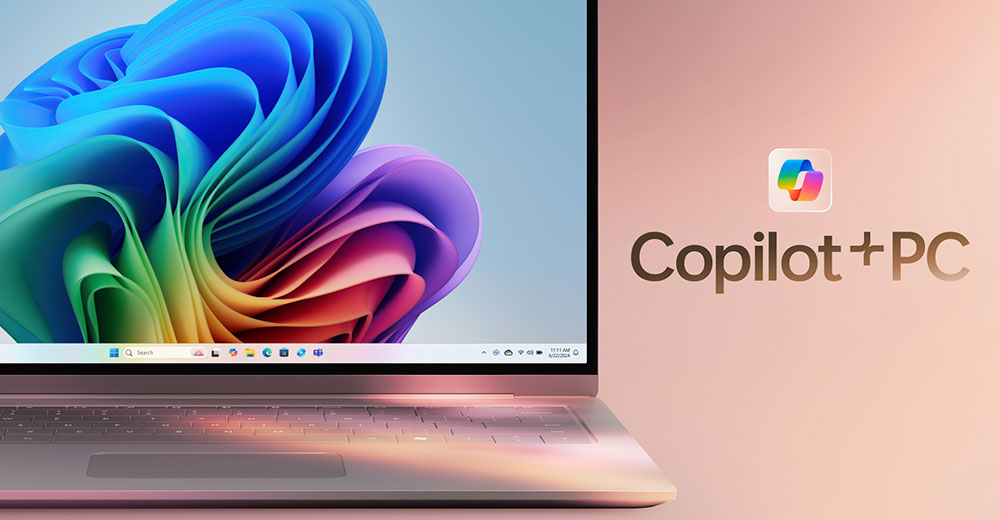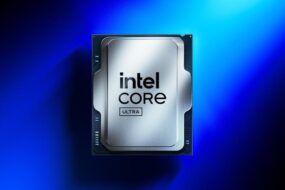
AMD has received approval from Microsoft for its new mobile Ryzen AI 300 series processors, which will now be capable of running Microsoft’s advanced AI applications, branded as Copilot+. AMD is also a key supplier for Microsoft Xbox, and with Microsoft’s strong focus on AI, it’s only a matter of time before an AI-powered Xbox is revealed.
Let’s take a closer look at what we can expect when the AI Xbox hits the market next year, followed by my Product of the Week—Intel’s new AI-enabled Lunar Lake processor.
The AI Xbox
Sales for Xbox—and PlayStation, to be fair—have been significantly lower this year, largely due to the lack of new hardware releases. Typically, a more affordable platform would have been launched by now. However, with processor manufacturing plants operating at full capacity, there hasn’t been room to produce the low-cost chips that could have spurred sales.
But the next major Xbox release could be groundbreaking. We anticipate a more affordable version of the Ryzen AI 300 series accelerated processing unit (APU), featuring a powerful neural processing unit (NPU), potentially arriving as early as next year. This will unlock exciting new capabilities for Xbox games, both existing and upcoming.
AI-Powered Games and NPCs
Nvidia has been pushing the idea of AI-driven NPCs (non-player characters) aggressively, but for now, Nvidia’s hardware isn’t in any gaming consoles. Instead, AMD has captured both Microsoft and Sony’s gaming platforms. Sony is likely aware that without AI-enabled games when the AI Xbox launches, it will lose a significant market share, as AI games are expected to be a major breakthrough.
AI NPCs are designed to behave more like humans, offering dynamic interactions that don’t rely on pre-set scripts or trial-and-error tactics. Players won’t need to search the web for cheats or prompts to solve puzzles, as AI NPCs can respond intelligently to in-game scenarios.
Moreover, multiplayer games are often more enjoyable, but finding the right team or accommodating socially awkward players can be a challenge. Expect new AI tools to help players navigate social interactions—like learning how to flirt in a game—without the risk of being judged by real people. This could open doors for those who find it difficult to engage socially in the real world.
AI Party Members
Imagine forming a team with AI NPCs that you can develop over time or that are based on alternative game avatars. For example, in one game I play, I have 61 fully developed avatars, and it would be exciting to either challenge them or create a team with them when I can’t find anyone online to play with. For those of us who’ve encountered griefers, bullies, and rude players, this could be a way to ensure a more enjoyable, safe gaming experience. Another benefit of AI NPCs is their ability to make the game world more dynamic.
Most video games today are quite scripted, so after playing through them a few times, they start to feel repetitive. But with AI NPCs, even when players aren’t around, NPCs could interact with each other, altering challenges, rewards, and how the game progresses. This means every time you log in, the gameplay will feel fresh, with new surprises awaiting you.
This AI-driven approach could extend beyond NPCs, allowing games to modify themselves based on player feedback and metrics that indicate frustration or anger. The game could autonomously adjust to address these issues, improving the experience for all players.
AI Mods
In-game moderators are often few in number, not particularly helpful, and frequently slow to respond. I’ve had mods take hours, or even days, to address complaints—long after the problem has passed. In many cases, players need assistance in real-time.
For example, imagine spending hours working on a quest, only for an NPC to get stuck in a wall, floor, or ceiling, halting your progress and forcing you to start over without earning the rewards for your efforts.
An AI moderator could step in immediately. It could monitor your gameplay, offer suggestions, and even proactively prevent problems before they arise. Ever asked a valid question in a new game, only to be met with a barrage of snarky comments about your age or intelligence?
New players often hesitate to ask questions because of the grief they receive, but we all start as newbies at some point. I’ve quit games in the past after asking a simple question and receiving a hostile response.
Mods are often overwhelmed because these positions tend to be understaffed, but AI mods could scale to match the number of players, ensuring faster responses and better support for both new players and those who don’t want to feel like “noobs.”
This scalability would also allow AI mods to more quickly identify and address griefers and bullies, potentially eliminating toxic behavior from games that incorporate this feature.
Wrapping Up
I believe the AI Xbox will be a game-changer, offering more dynamic gameplay and NPCs that feel human, while also fostering a safer gaming environment.
A few years ago, Microsoft launched an avatar-based social network aimed at young women. I was given access to observe the interactions (which made me nervous, given that the users were all underage), only to find a man with two daughters running around with inappropriate avatars. I reported the issue, and Microsoft shut it down shortly after.
AI-driven games have the potential to instantly identify inappropriate players in kids’ games, protect users, and make the experience more engaging, exciting, and uniquely compelling. AI companions are already on the market, and it’s not far-fetched to imagine that future gamers could develop relationships with their AI NPCs, which could have significant implications if a game were ever discontinued.
With AMD backing Microsoft’s Copilot+, the AI Xbox is on the horizon—and it’s going to be revolutionary. I can’t wait to see it!







